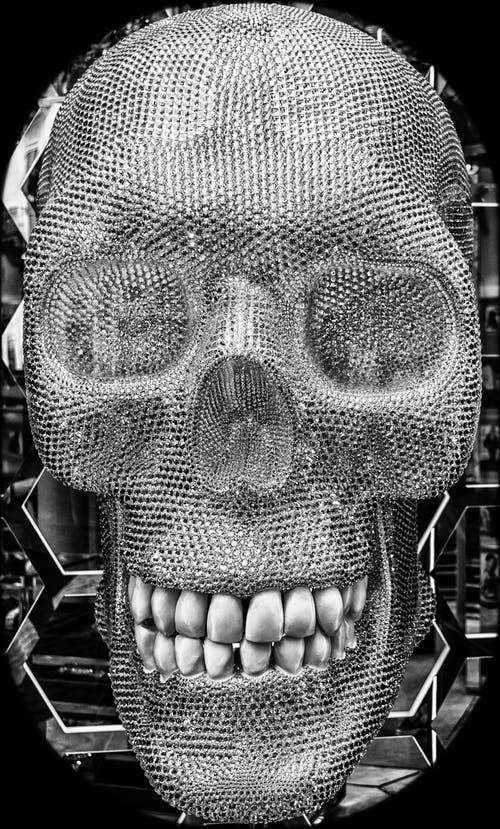Dealing With Headaches: What Are Your Options?

Image Source: Unsplash
Article by: Maggie Potter
Almost everyone experiences headaches from time to time. They can range in severity. Some are nothing more than minor annoyances. Others can make you feel as though your head is in a vice, and they can become quite debilitating.
When you’re dealing with frequent or chronic headaches, though, they can start to take over your life. They can cause terrible pain and keep you from going through typical, everyday activities.
When headaches become extremely severe, they could turn into migraines. Migraines are actually part of a neurological disease that causes throbbing pain in the head, and they impact over 39 million people in the United States alone.
If you do suffer from chronic headaches or ones that are extremely severe, you should always talk to your doctor first about what to do and what treatment options are available to you. But, in some cases, getting to the root of what’s causing your headaches can help you to deal with them a bit easier.
Headaches Caused by Stress
Everyone in the world deals with stress on a daily basis. Some stress is even a good thing. But, when you let it overwhelm you, or you start feeling burned out by the stress in your life, it can lead to a variety of symptoms, including headaches.
Stress tends to trigger something called a
tension headache, which is often felt not only in the head, but can affect your
neck, too, almost like a “pressure.” Unfortunately, the pain and irritation
caused by the headache can make you feel more stressed, so it’s really a
terrible cycle.
Both stress and headaches can also impact the way you sleep. Stress can lead to insomnia — or, difficulty
going to sleep or staying asleep. A lack of sleep can make your head feel even
worse since it isn’t allowing your brain to relax and the stress to go away for
a while. Some people benefit from taking sleeping pills for their insomnia, but
that doesn’t always work. The best thing you can do is to reduce stress in any
way possible.
Again, stress is always going to be there. It’s impossible to get rid of it completely. But, finding things that work for you to reduce your stress on a daily basis can have a huge impact on the way you feel, and can help you to manage the pain and symptoms of chronic headaches.

Some common ways to reduce and manage your stress include:
- Meditation
- Yoga
- Mindfulness
- Deep breathing exercises
Even something as simple as listening to your favorite music as you walk around the block can be a stress reliever. Experiment with different things that make you happy. Find what allows you to breathe and let go of some of your stress each day, and you can naturally deal with how headaches affect your life.
Fighting External Factors
In addition to stress, there are many potential external factors that could be contributing to frequent or severe headaches.
For some people, eye problems could be a contributing factor in causing headaches. Think back to when you were a child. Did you sometimes have trouble reading in school, or seeing what the teacher was doing? Maybe you came home with a headache each day, and your parents finally decided to take you to the eye doctor to consider glasses.
While that may be a bit of a cliche story, there’s a lot of reality behind it, too. Eye problems and headaches are often closely related (especially when it comes to migraines). You could be dealing with a serious eye condition, but more often than not, the headaches are caused by eye strain. Eye strain happens when you overuse the muscles that help you see and focus. It’s not uncommon for people who work at a computer all day, or for those who write, read, or drive in low light on a regular basis. The good news is that you can reduce eye strain by giving your eyes a break. Blink frequently, and step away from anything that might be straining your eyes for a few minutes every two hours.
Your headaches could also be caused by a problem your dentist can treat. But, it doesn’t necessarily have to do with your teeth. Rather, it’s your jaw that could be bringing the pain.

A condition called TMD is caused when your jaw isn’t working properly. Sometimes, the contact it has with the teeth is out of line. Your jaw can also get damaged or worn down over time, causing the problem. Common symptoms include:
- Pain or tenderness near the jaw
- A “clicking” sound when you chew
- Your jaw frequently locks
- Your teeth feel misaligned
- Frequent headaches or pain around the area
In most cases, TMD can be treated and home and managed with the help of your dentist. Sometimes, in more severe cases, surgery may be required. If your headaches are accompanied by any of the symptoms listed above, a visit to your dentist is in order.
Managing Chronic Pain Caused by Headaches
Chronic pain can make your life miserable. Trying to manage it takes a lot of strength and energy. In turn, that can lead to exhaustion, stress, and even more headaches. Chronic pain can also contribute to other symptoms, including changes in your mood, sleep habits, and appetite. It’s important to find what works for you in terms of dealing with your headaches and finding a release from the pain.
Your physician might recommend a variety of different things to manage your pain, including medication, changes to your diet or sleeping patterns, or, potentially, even alternative methods of pain management. It all depends on what is causing your headaches to occur, in the first place.
So, while frequent headaches can be frustrating and feel as though they’re taking over your life, they don’t have to last forever. Find the root cause of your headaches, and focus on treating that issue first and foremost. Then, you can get the symptoms surrounding your headaches under control with the help of your doctor.









